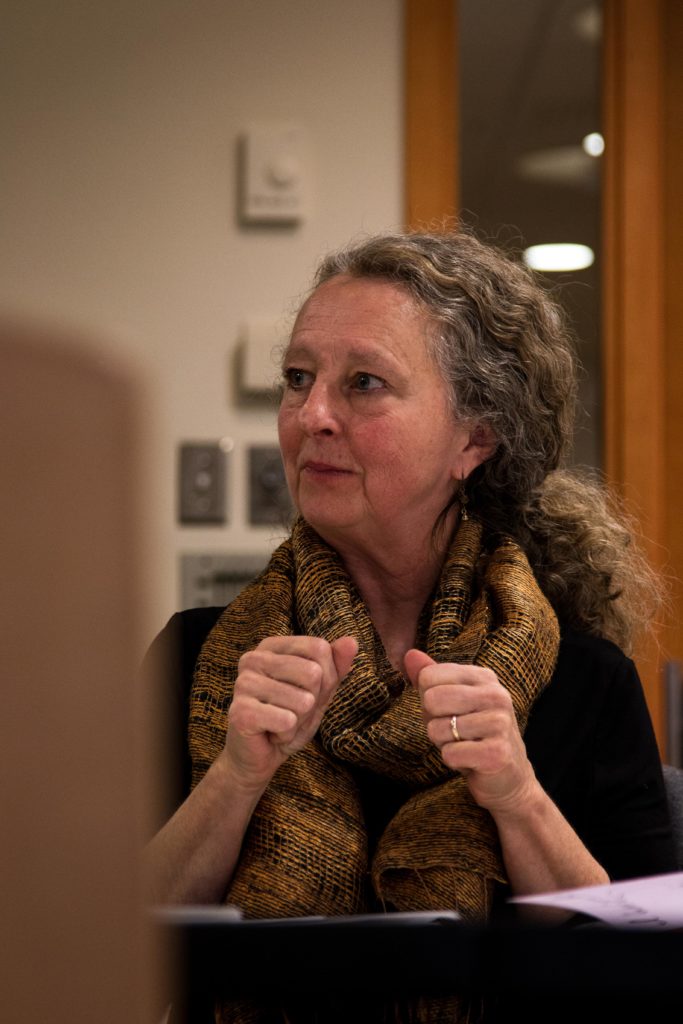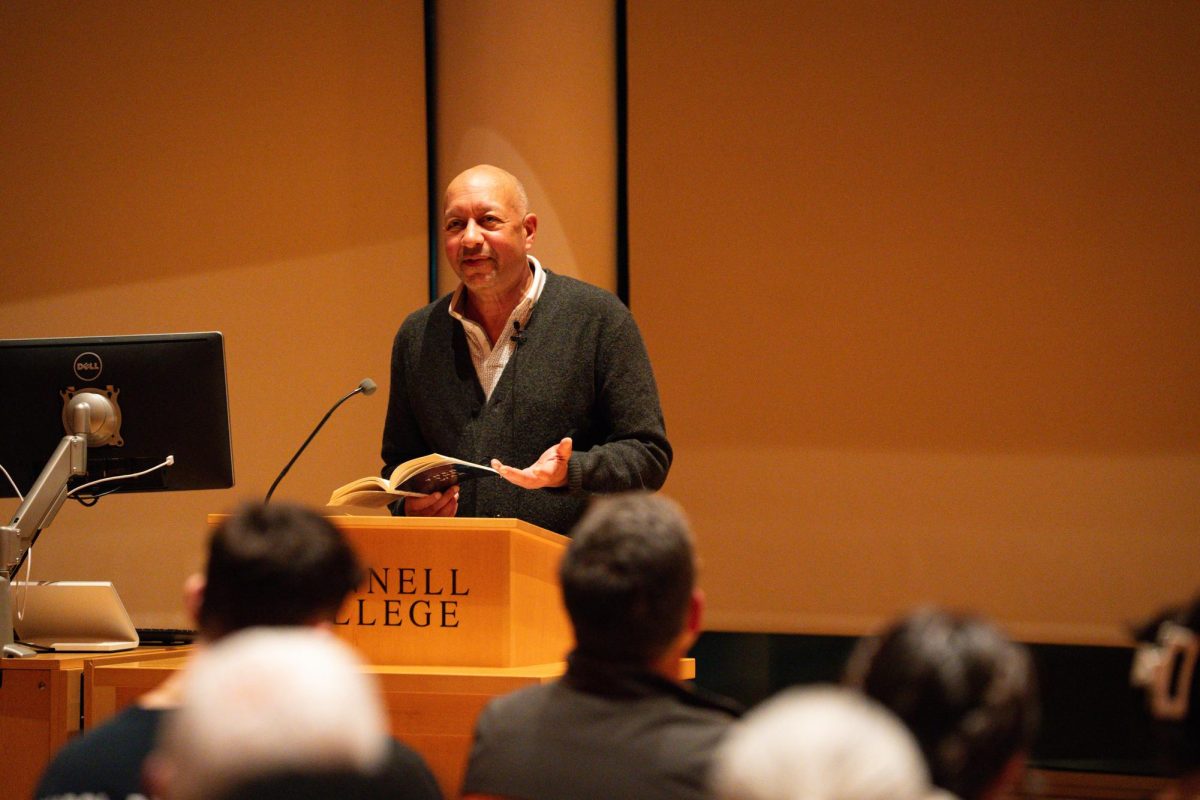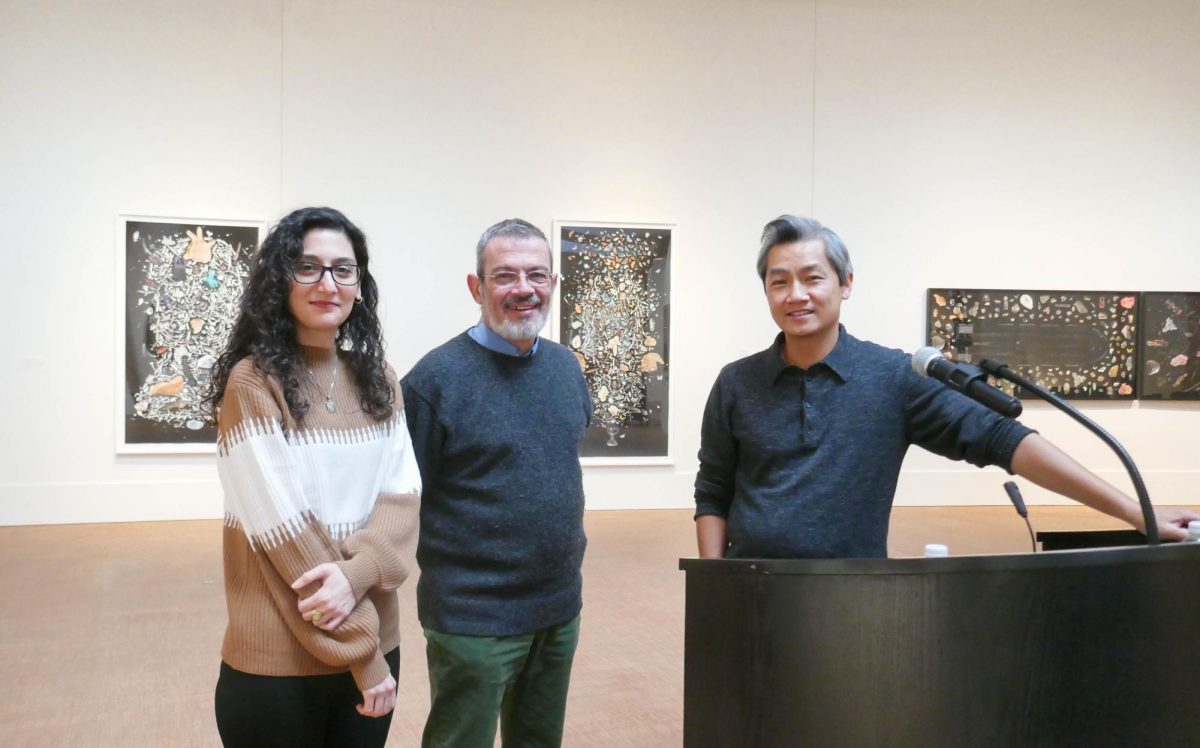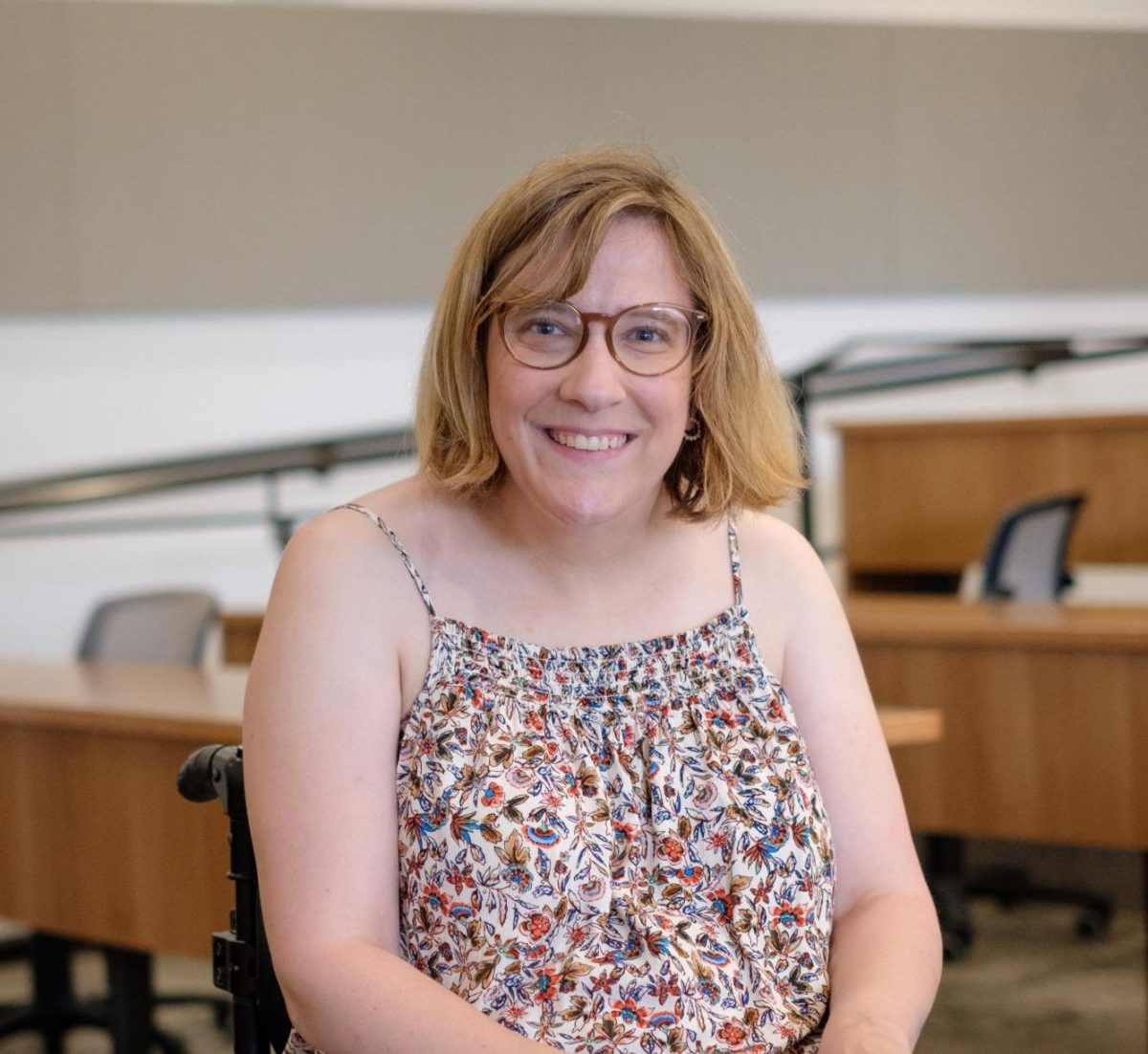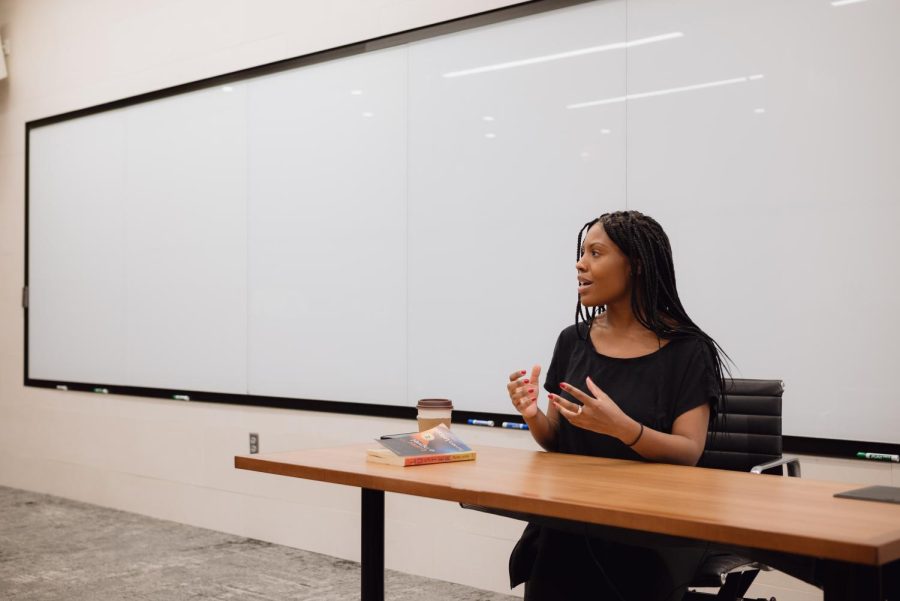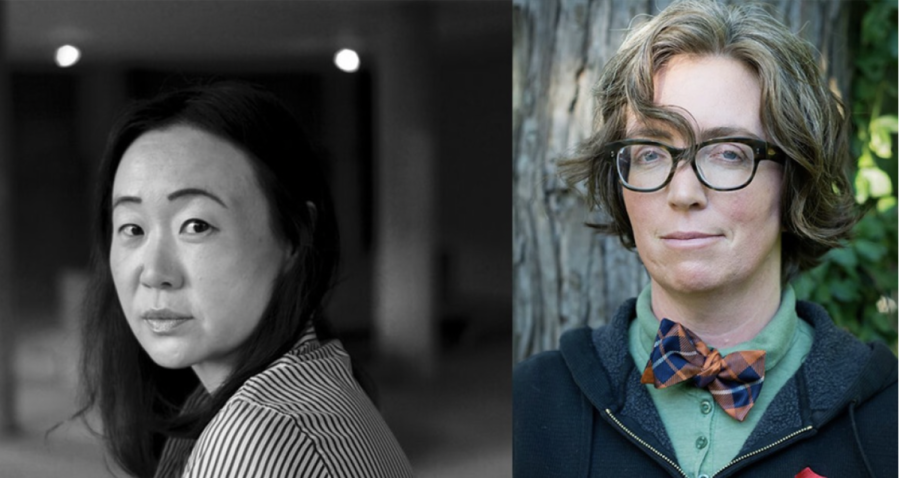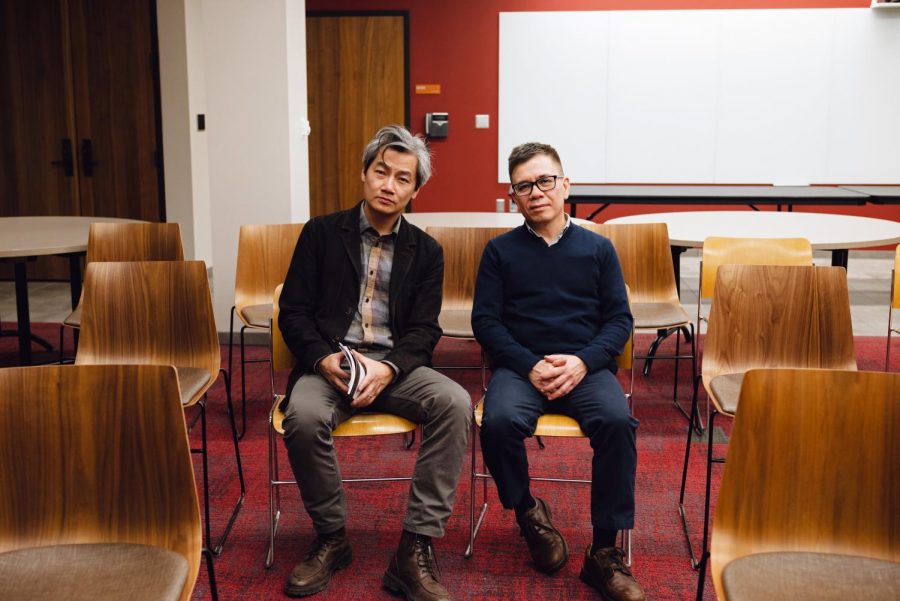Lynn Powell, a renowned poet, professor of creative writing at Oberlin College and recipient of the 2017 Felix Pollak Prize in Poetry for her book “Season of Second Thought” led Writers @ Grinnell round table this Thursday. The S&B’s Amanda Weber sat down with Powell to discuss religion in poetry and delving into nonfiction writing.
The S&B: How does writing poetry differ for you from writing creative nonfiction? Is there a style that you prefer?
I’ve been instinctively a poet since I was a child, and so I think poetry is my native tongue, although that doesn’t mean it’s easy for me to do. … I wrote a nonfiction book when there was a legal case in my community that called for those of us who felt like there was an injustice being done to take a stand and to take action and I was part of that. … It was actually very arduous and it felt like I had to start from scratch, learning how to write even a sentence all over again. I think I had a poet’s arrogance that if you can write poetry, you can write anything, and I was really humbled. … I’m glad they’re both in my life.
I’ve noticed a pattern of Biblical allusions in much of your poetry—what inspired that motif?
I grew up a Southern Baptist in East Tennessee, so I was raised in a very religious home, and it’s kind of like an ethnicity. Even after you no longer live in that culture anymore, it’s made you who you are, and you see the world through the metaphors and images and language you grew up with. As a child, I went to church three times a week. … I was a poetic child and a metaphysical child, which means I really was thinking hard when I was little about what is good and what is evil and what is death and what is the meaning of life? … I really believe that as a writer, you should bring everything you are into your voice and into your writing, and to censor that is to deprive yourself of a richness in your own life, in your own voice. … That’s something I register as a potential gap between me and a number of readers, but I think it would [be] a sad world if I only wrote to what I thought everybody knew, so what I hope is that there will be enough in the poems to get a reader interested so that they might Google who Delilah is, or who Lazarus is, and educate themselves.
“Framing Innocence” seems like such a departure from your past works in poetry — you said that there had been an incident in the community, is there anything else that made you want to write it?
You had been asking about the religion in my work and, coming back to that metaphysical child, I think one thing I value deeply about my religious upbringing is that I was taught to value the truth, I was taught to love my neighbor as I love myself and I was taught you’re supposed to risk your own interest to save others. Now maybe, the way I was growing up, it meant save their souls, but save their souls can mean different things, as you get older and think about it. There were ways in which I became a leader in the community that stood up against this injustice, and I think that’s a direct line between the kid that grew up in the church that said love your neighbor as yourself. … I think that writing a book of nonfiction is a very far cry from writing a poem, but I tried to bring to that nonfiction the same kind of precision I aspire to in my poems, the same kind of care for language and the same kind of pressure to get to the complicated truth.
What do you think were some of the most helpful lessons you learned in college?
The first thing I learned is that there are other poets in the world. I literally grew up in a home where the main book was the Bible — there was no poetry in the house. It was a loving home but not a literary home. … I walked [into my college creative writing class] and our textbook was called “Contemporary American Poetry,” which is something I didn’t even know existed but there was a whole book of it. And I thought, “These poets are out there breathing right now and writing poems right now, just like me.” I think I’ve never quite gotten tired of the wonder of that — that so many people need poetry, that so many people want poetry. … The biggest thing that happened for me in college was the opening of that world, and working with a poet closely who became my friend and my mentor, and I’ve never lost that sense of discovering a new world.

Lyn Powell answered student questions in JRC 209 on Thursday.
Photo by Helena Gruensteidl


















































